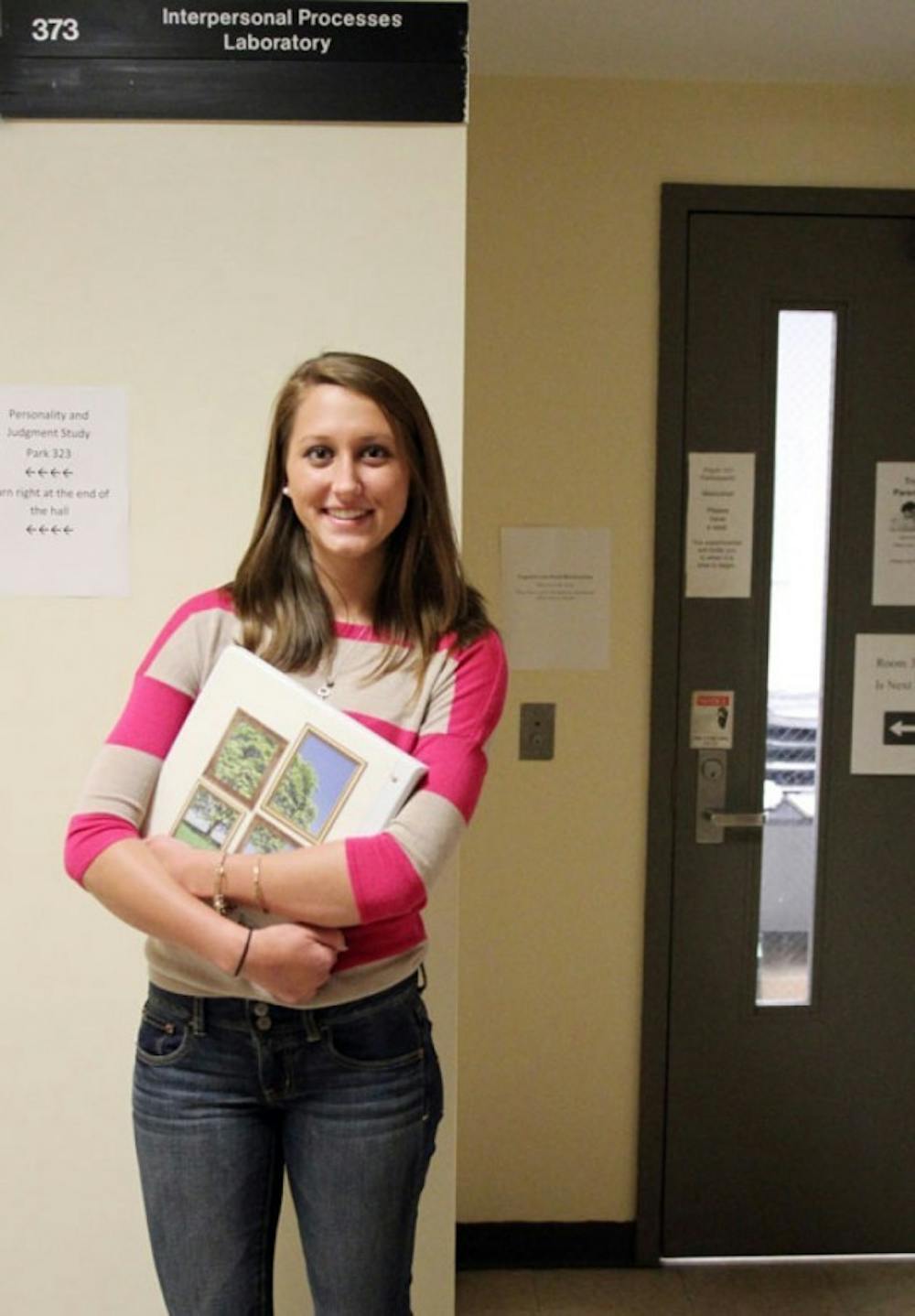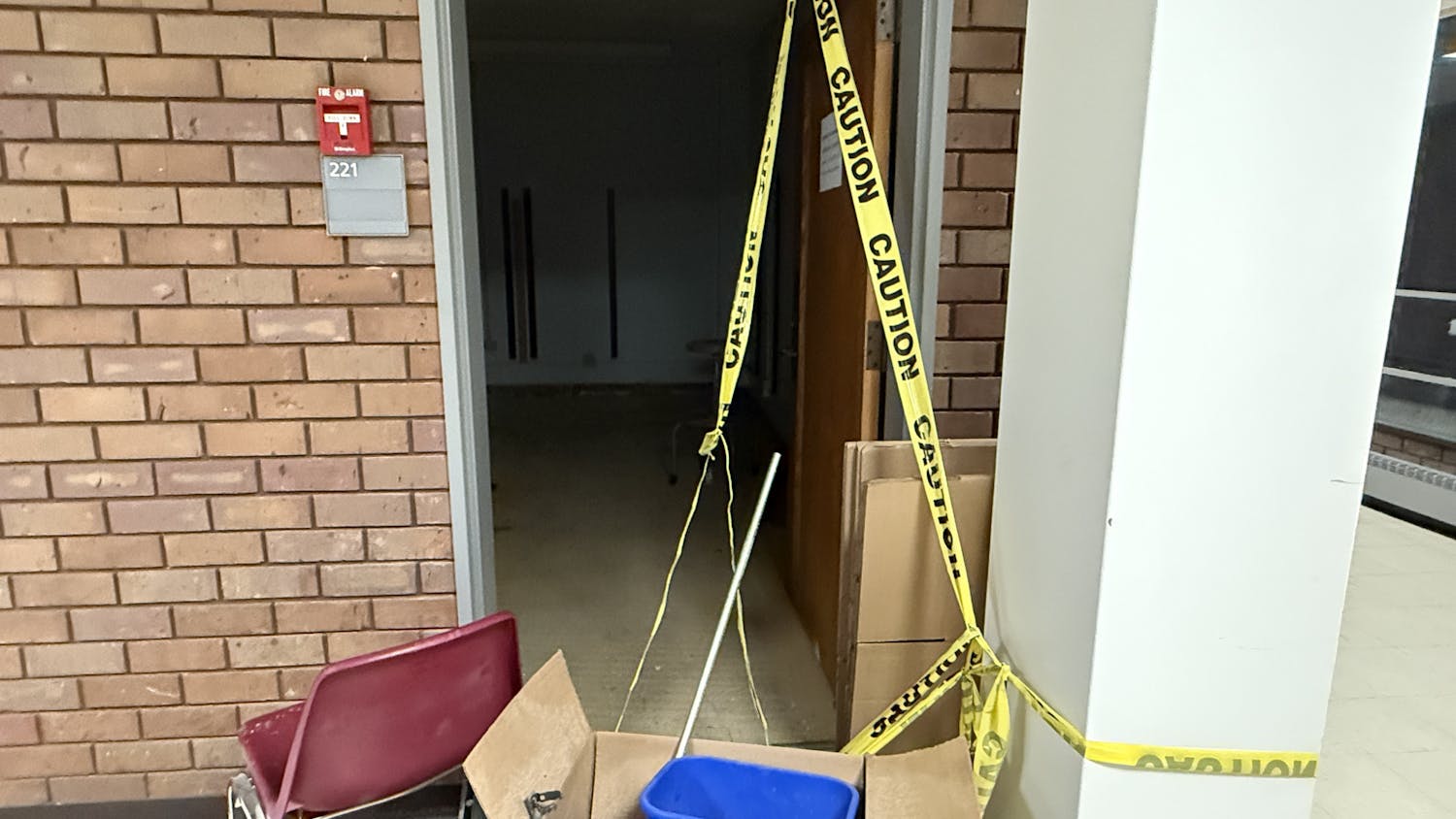Rui Lin did not expect to be matching pictures with music clips or thinking about his approach to romantic relationships when he began his introductory psychology class.
But as a student taking PSY 101, the freshman business major participated in experiments to fulfill class requirements.
UB’s Department of Psychology has approximately 30 faculty members leading studies in research labs. As the number of research studies increase, the labs need a greater pool of participants. The psychology department uses introductory psychology classes and cash incentives to ensure there are enough students showing up to their labs.
The department needs a pool of diverse participants and there isn’t a more diverse community than at UB, according to Sarah Gomillion, a fourth-year social-personality psychology graduate student.
“[Participating in experiments] can be a great educational opportunity for students from various majors to learn about the science of psychology,” Gomillion said. “[It] serves as meaningful contribution to our labs here in the Psychology department.”
Students in PSY 101 are required to complete nine credit hours of research, earning .5 credits for 30 minutes of participation in a study. They have the entire semester to complete these credit hours. If a student is under the age 18 or doesn’t want take part in the experiments, he or she can write summaries on psychology research from scholarly journals.
Students have done a gamut of different experiments. Some recall watching highlights from the movie Twilight, listening to birdsongs and determining what are real words and nonsense words.
Craig Brinkman based his graduate school decision on his PSY 101 experiments.
The first year social-personality psychology graduate student, learned about different types of research as a subject of the experiments. Now, he is involved with a lab that studies interpersonal processes and dynamics within romantic relationships. He said student participation is an important contribution to not only the research labs, but for students to learn and have self-awareness experiences.
“Learning by doing and realizing some of the things you never thought before is one of the ways that these studies can benefit students,” Brinkman said. “It also helps some students to be aware of different areas of psychology, which might affect their academic major choices later.”
The department applies the definition of “active engagement in psychological research” as the core value to their program curriculum. This approach creates opportunities for the UB community – especially undergraduates – to get involved in research and explore the world of psychology.
The university studies four primary areas of psychology: behavioral neuroscience, clinical psychology, cognitive psychology and social-personality psychology.
Gomillion conducts research in the psychology lab on close relationships between people.
Steve Starczewski, a sophomore exercise science major, said he enjoys participating in various experiments because he finds them interesting and enriching. He takes each experiment seriously to learn more about the topic as well as to make his contribution to these studies more meaningful.
“I realize that these studies, like relationship experiments, give us an opportunity to think about how we approach certain topics,” Starczewski said. “That’s why I like debriefing sessions and take extra time to think about the goal of each study I am participating.”
Once students complete an experiment, the researchers can explain the purpose of the study.
The research labs typically recruit its participants through PSY 101 classes but the labs also recruit students through flyers hung around campus and aimed toward a specific group of people.
Gomillion said if students are not compensated for their time through class credits, they are offered a small cash incentive or a chance to win gift cards. She said if researchers need more participants for a study, some of their other recruitment efforts include posting ads through local newspapers, Craigslist or web sources.
The steps taken in each experiment will vary depending on the study.
Gomillion said in their social-personality psychology labs, the first step begins with a screening process to see whether a participant is eligible for a certain study after he or she agrees to participate. The researchers look at factors like if the participant smokes and what their drinking habits and age are.
The eligible participants are then invited to an appointment where they receive briefing sheets and are asked to follow instructions from the lab staff. Depending on the nature of the study, the sessions can range from 30 minutes to a couple hours.
Lin said he enjoy that his prediction about the goals of some of the studies he is involved in are usually incorrect.
“They of course don’t tell you what the study is about at the beginning and you develop an idea through the time you spend in the lab” Lin said. “But when they tell what they were looking for within that study, and you say, ‘Oh, I have been tricked.’”
Lin said the experiments prove how reality can sometimes be different from what we perceive.
email: news@ubspectrum.com





